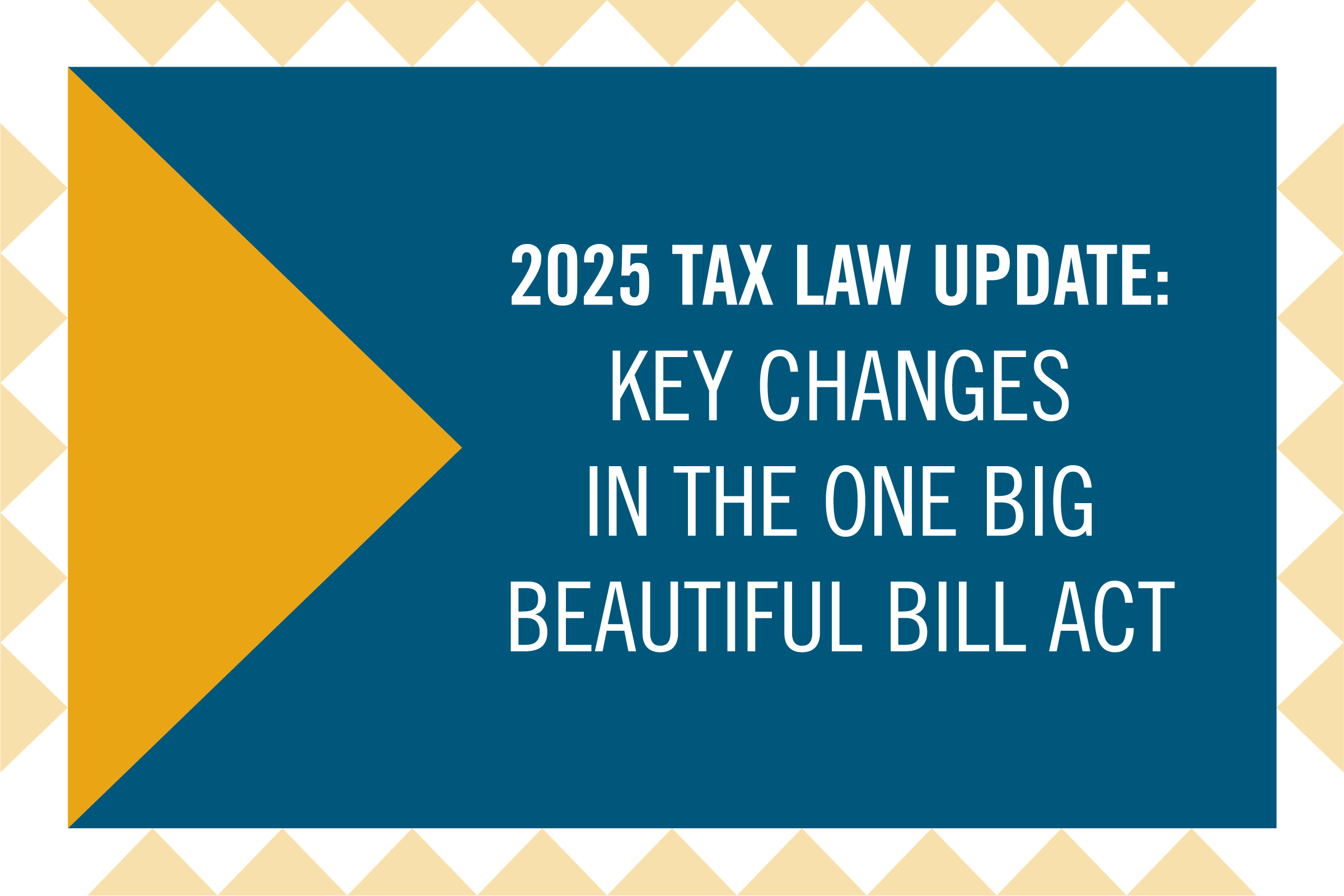Preparing for the 2025 Tax Cliff: Key Impacts and How Businesses Can Prepare
- Contributor
- Kris Hoffman
Nov 11, 2024
The U.S. is approaching a significant fiscal moment, often referred to as the “2025 Tax Cliff,” a period marked by the expiration of key provisions from the 2017 Tax Cuts and Jobs Act (TCJA). This legislative change carries substantial financial implications, as it will result in approximately $4 trillion in automatic tax increases unless Congress takes action. Because many of the TCJA’s provisions were designed to be temporary, unless they are extended, tax policies will revert to their pre-2018 structures.
For businesses, this “tax cliff” presents both challenges and opportunities for strategic tax planning. In 2017, the TCJA introduced significant tax reforms, reducing tax burdens and altering compliance for many corporations and small businesses. However, as we approach the end of 2025, businesses are faced with the potential return of previous tax rates, deduction limitations, and compliance obligations, which may affect everything from day-to-day cash flow to long-term financial planning.
Key Areas Affected by the 2025 Tax Cliff
- Loss of Key Deductions: Significant deductions, such as the Qualified Business Income (QBI) deduction and accelerated bonus depreciation, are set to sunset. This means businesses will have fewer opportunities to offset income with these previously valuable tax benefits.
- Changes to Individual Tax Rates for Business Owners: Business owners filing as individuals or through pass-through entities will likely face higher individual tax rates. The reversion to higher personal income tax rates and reduced standard deductions could affect their net income and influence business spending and expansion plans.
- Phased-out Tax Credits and Incentives: Critical tax credits, like the Work Opportunity Tax Credit and paid family and medical leave credit, will expire at the end of 2025. These credits currently provide valuable incentives for hiring and employee support, and their expiration could lead to increased employment costs.
Why Year-End Planning for 2024 is Crucial
As businesses plan for the upcoming fiscal year, understanding and preparing for both immediate and near-term changes is essential. Year-end planning for 2024 should focus on maximizing remaining TCJA benefits, evaluating the timing of income and expenses, and considering alternative tax strategies to mitigate the impact of potential rate increases. The expiration of these provisions could also lead to increased audit activity as businesses adjust their tax strategies, making compliance a priority in the coming years.
Businesses will benefit from a proactive approach that includes:
- Maximizing expiring deductions and credits: Utilizing all available TCJA deductions, credits, and incentives during the 2024 tax year will help optimize tax efficiency.
- Evaluating capital expenditures: Given the changes to bonus depreciation, businesses should consider accelerating any planned investments in equipment or property.
- Assessing employee benefits and compensation strategies: Businesses should analyze their benefits structures for cost-effectiveness with the potential loss of employee-related tax benefits in mind.
- Consulting with Tax Professionals: With the range of potential tax changes, it’s important to consult with tax advisors to tailor strategies to specific business needs, preparing for 2024 and beyond.
Get Ahead of the Curve with Proactive Tax Planning
Proactive tax planning is always critical, but impending changes make it more crucial than ever. By understanding the potential impacts of the “Tax Cliff” and implementing strategies now, businesses can position themselves to minimize tax burdens and maximize financial stability. Don’t wait until it’s too late—reach out to your CRI advisor today to discuss tailored strategies that can help safeguard your business and take full advantage of current tax benefits before they sunset.

















































































































































































































































































































































































































































































































